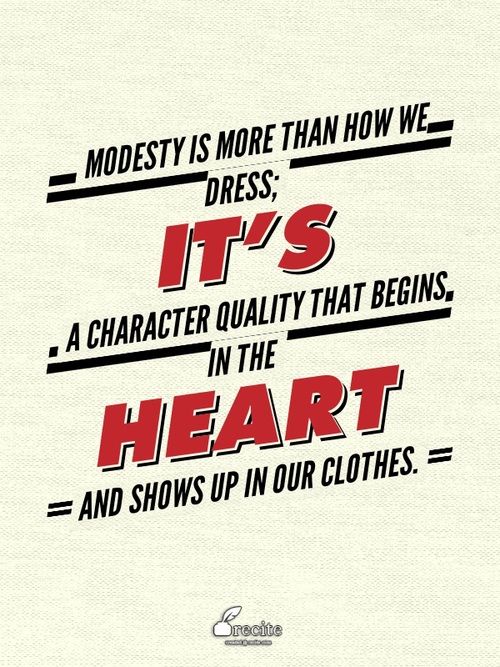
Let him who is without sin among you be the first to throw a stone at her. (John 8:7)
With these words and some writing with His finger in the dirt, Jesus placed each of the accusers as the one accused in the courtroom of their own conscience.
But is it by punishing her that the law is to be fulfilled by those that ought to be punished? Let each of you consider himself, let him enter into himself, ascend the judgment-seat of his own mind, place himself at the bar of his own conscience, and he will be obliged to confess himself a sinner. – Saint Augustine, Commentary on the Gospel of John, Tractate 33, 5
Jesus does not affirm, excuse, or overlook sin. Without a harsh word, as perfect Justice and Mercy, He disarms the prosecution by revealing the hearts of the accusers. When left alone with the woman, Jesus gently and lovingly invites her to repentance and conversion.
Rash judgment is unfounded “labeling” of people negatively. It’s the sin most frequently committed and least frequently confessed. – Fr. John H. Hampsch, CMF
I observed an attractive young woman enter the front pew. She smiled warmly as she seated herself between two couples with significant space between them.
Admittedly, my first thought was judgmental and critical of her form-fitting dress which was undeniably on the shorter side of modest. By the grace of God, I was immediately and gently corrected in my reading of the Gospel reflection from In Conversation with God for the Twenty-Fifth Sunday, Year A.
The Lord is not interested in useless complaining which shows a lack of faith. Nor does he want us to have a negative or pessimistic outlook on the people and circumstances around us. This is the vineyard; this is the field where the Lord wants us to work, inserted into the middle of the world. It is in our very own family and no other that we have to become saints.
There’s a big difference between striving to become a saint and imposing demands of sanctity on another. This applies to blood relatives and those whom we are related to as family by the Blood of Christ.
Holiness cannot be imposed on anyone. Instructing the ignorant or admonishing the sinner is most efficacious between those in a well-established, loving, and trustworthy relationship.
 Shortly before Mass was to begin, I observed the older couple beside the young woman speaking to her in an obvious reproachful manner.
Shortly before Mass was to begin, I observed the older couple beside the young woman speaking to her in an obvious reproachful manner.
My peace was tangibly disturbed.
Although I couldn’t hear the conversation, it was painfully clear by the scornful expression on their faces that the husband and wife were rebuking the young woman with self-righteous indignation.
The scolding ended with the older couple turning their faces toward the sanctuary. By appearances, they were very happy with themselves.
Without love, deeds, even the most brilliant, count as nothing. – St. Thérèse of Lisieux
The young woman got up and looked as though she would burst out in tears. She was going to exit down the center aisle when a genuinely charitable woman in the second pew invited the distraught teen to sit beside her. She sat for a few moments and then hurriedly exited through the side door.
I offered up my Holy Communion for the healing of her heart, for the conversion of the couple who had publicly shamed her, and in reparation of the harmful offense I witnessed in the front pew of the large parish church.
Killing stones should always be reserved in your pouch for facing the giant enemies of God.
We have been called to heal wounds, to unite what has fallen apart, and to bring home those who have lost their way. – St. Francis of Assisi
Like St. Francis, we are called to be living stones – stepping stones on the path to God’s love and mercy. When instructing the ignorant or admonishing the sinner, we must do so with truth, in humility, with love.
Truth without love is brutality, and love without truth is hypocrisy. – Warren Wiersbe
Love is a lamplight on the narrow road. Stones hurled with judgement and arrogance become stumbling blocks to conversion. Such stones can form a barrier wall around a wounded, impressionable heart that could keep out the grace of God necessary to bring a soul along on the path to holiness.
You hypocrite, remove the wooden beam from your eye first; then you will see clearly to remove the splinter from your brother’s eye. (Matthew 7:5)
 It is first, within the home – the domestic church – that parents have a solemn duty to nurture a young conscience and instill an understanding of the virtue of modesty as the veil that respects, honors, and preserves that which is most beautiful, most sacred, most worthy to be cherished because…“That which is veiled is holy, to be unveiled only in covenant love.” – Scott Hahn, Signs of Life
It is first, within the home – the domestic church – that parents have a solemn duty to nurture a young conscience and instill an understanding of the virtue of modesty as the veil that respects, honors, and preserves that which is most beautiful, most sacred, most worthy to be cherished because…“That which is veiled is holy, to be unveiled only in covenant love.” – Scott Hahn, Signs of Life
Modesty protects the mystery of persons and their love…Modesty is decency. It inspires one’s choice of clothing. It keeps silence or reserve where there is evident risk of unhealthy curiosity. It is discreet…Modesty inspires a way of life which makes it possible to resist the allurements of fashion and the pressures of prevailing ideologies…The forms taken by modesty vary from one culture to another. Everywhere, however, modesty exists as an intuition of the spiritual dignity proper to man. It is born with the awakening consciousness of being a subject. Teaching modesty to children and adolescents means awakening in them respect for the human person. (CCC 2522, 2523, 2524)
The subject of the young woman’s most uncharitable scolding was modesty. But that’s not what this is about.
This is about her identity in Christ.
I never learned her name but I know who she is and what she is not and that makes all the difference in how I see her and how I would speak to her.
She is a child of the Most High. She is a princess of the King of Kings. She is redeemed, just like you and me, by the Blood of Christ. In similar circumstances, treating her or anyone else as anything less brings tremendous sorrow to the heart of our Mother.
She is not the sum of what she wears.
I don’t know her thoughts, but perhaps she seated herself in the front pew with a childlike desire in her heart to be near as possible to Jesus who not only knows her name but knew her before she was born, loves her with an everlasting love, and set her apart for His holy purpose. (Jeremiah 1:5)
I pray she returns. Please join me in praying that she comes home.
I have called you by name, you are mine. (Isaiah 43:1)
The Creator of heaven and earth places infinite value on our name. Our name is divinely integral to our identity. The more we see our neighbor as one whom God calls by name – as one created in His image and likeness – the more we can love as Jesus loves and offer ourself as a stepping stone – in accordance with God’s will – on their way to holiness. And we’re certain to become more saintly within our family along the way.
At the end of our days, it’s better to have loved with the mercy of Jesus than be justly judged for hurling stones at a precious son or daughter of God whom we didn’t love enough to know and call by name.
…and Jesus was left alone with the woman standing before him. Then Jesus straightened up and said to her, “Woman, where are they? Has no one condemned you? She replied, “No one, sir.” Then Jesus said, “Neither do I condemn you. Go, and do not sin again. (John 8:10-11)
© 2023 Brian Kravec
Brian is a cradle Catholic, husband and father. He’s a writer, speaker, and the Co-Founder and Executive Director of Possibility Productions, a 501(c)(3) faith event evangelization apostolate in service of the Body of Christ.








One Response
Modesty, in dress and words and action, seems to be completely forgotten in today’s culture. However, there may never be a more important time to be examples of light in the darkness. Join Fr. Chris Alar as he explains what modesty is… https://www.youtube.com/watch?v=7jLGwy7ltao